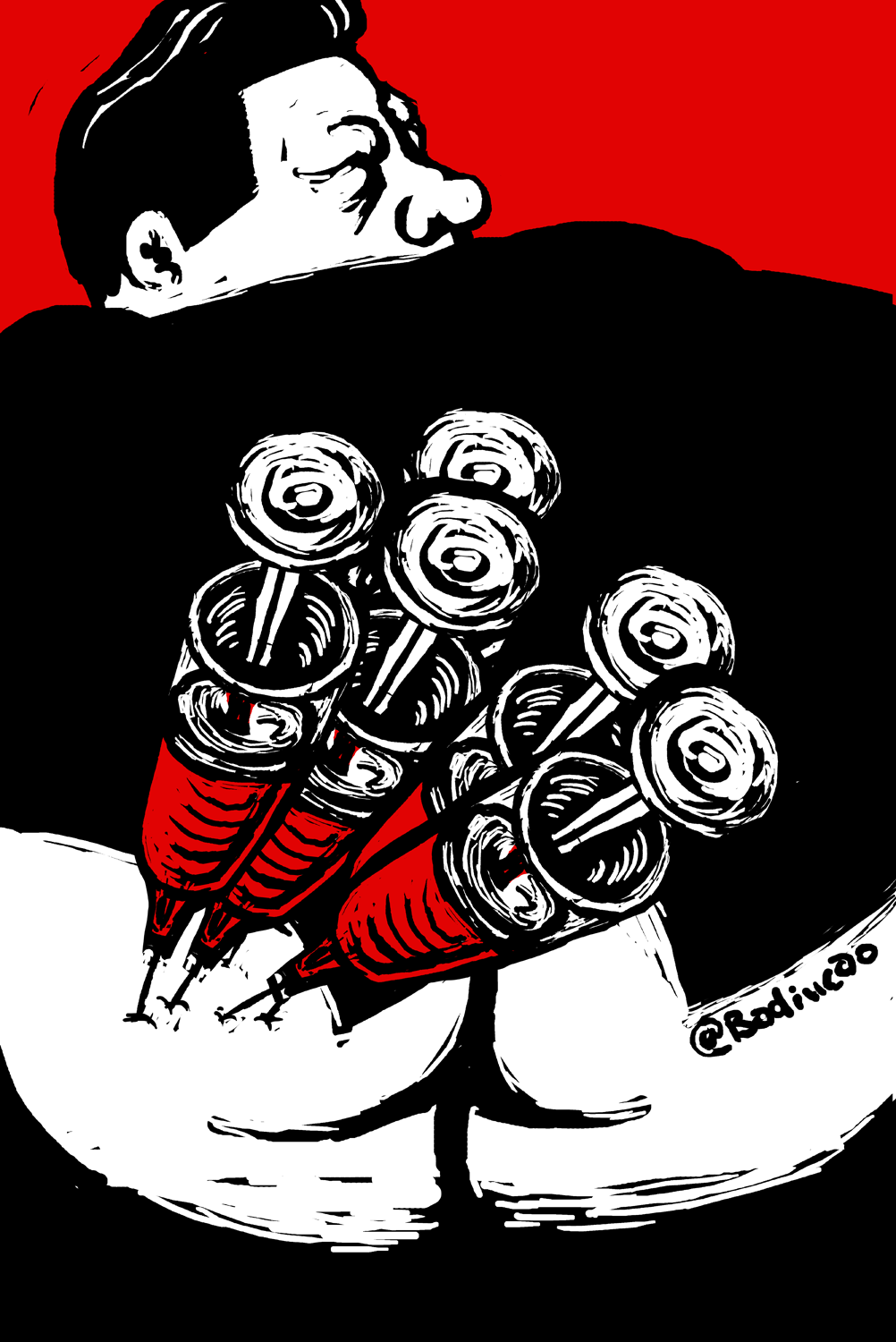The revelation of a scandal involving the illegal distribution of over US$88 million in improperly stored vaccines over the last five years has sparked outrage in China, where food and drug scandals are commonplace. An ongoing investigation has so far led to the detention of at least 37. Mounting public anger has elicited comments from Premier Li Keqiang, and the director of China’s Food and Drug Administration has acknowledged that the scandal points to systematic problems with distribution in China. Meanwhile, Hong Kong’s relative regulatory strictness may have sparked a surge in “vaccine tourism” to the semi-autonomous region. As Weibo users express concerns over vaccine safety, authorities’ delayed attention to the scandal, and the media’s handling of it, WeChat streams have also begun churning with fearful sentiment.
Amid this climate, some have begun expressing concern that such safety issues may be feeding suspicion of vaccination in principle, along similar lines to anti-vaccine fears in the West. Caixin Media, which has recently been lionized for standing up to China’s increasingly tight censorship, is now facing criticism for conflating the two issues. After news broke of the scandal, Caixin re-circulated a 2013 photo essay featuring Guo Xianzhong’s portraits of children whose health was allegedly destroyed by vaccinations for various diseases. “Three years later, the problem remains, and the tragedy continues to play out,” the editors write in a new introduction to the essay, “Vaccination’s Young Victims” (疫苗之殇). The article is now gone from Caixin’s website (though still available in Google’s cache), but has already been reposted frequently enough to elicit a warning from the Global Times about its fear-mongering, translated below:
In fact, the Shandong “expired vaccine” problem exposed a series of issues we’ve been following, especially concerning the two main culprits. Not only have they committed multiple offenses, but the latest was in 2015, during their suspended prison sentence…
Even so, while we have been dutifully reflecting on our supervision of the relevant government departments, some media groups, for some unknown reason, not only mixed up “expired vaccines” with “fake vaccines” and caused the public to panic, but they also pulled out an article from 2013 that has already been completely refuted by medical experts and scientists, inciting the public’s “conflicted feelings” about vaccination as a whole.
[…] This article is “Vaccination’s Young Victims,” which has hit so many WeChat friend circles today. In this 2013 report, a reporter at a certain media group searched among “several hundred million” inoculations in China between 2003 to 2014 [sic] to find 10 children suffering from “extremely serious reactions” (note from Honest Brother: this probability is fewer than one in one million), coming to this conclusion: the adverse effects of normal vaccination deserve attention, so quick, go tell the parents nearby about to have their kids inoculated that whatever they do, they shouldn’t let carelessness bring about a lifetime of regret.
According to Honest Brother’s understanding, this article isn’t just blowing up our WeChat feeds. Whether it’s in our friend’s circles or coming from journalists or readers on the street, we’re hearing people say: vaccination is dangerous, never let a child be vaccinated again… [Chinese]
It should be noted that, according to the CDC, improper refrigeration only causes the efficacy of a vaccine to diminish, but does not in itself produce adverse effects.
Popular blogger Hecaitou also called out Caixin and other “media and self-media” for “manipulating” a less-educated readership. He particularly criticizes the use of the character shāng 殇 in the Caixin article’s title, delving further into its meaning:
Finally, shāng 殇 refers to children who die before they reach maturity or to people who die for their country in battle. Do vaccines distinguish between children and the middle-aged? Or is it that vaccines have laid down their lives for the country? Illiterates love to abuse this character, simply because it seems to be a class above shāng 伤 (injury). It’s as if an illiterate village opened a furniture factory, but they didn’t say “furniture,” and had to say “fuhnichuh” instead. [Chinese]
The arguments continue. While some back up objections to Caixin’s reposting of the 2013 photo essay, others say public anger should not be so easily dismissed.
For more on “anti-vaxxer” opinion in China that predates the revelation of the current scandal, see a 2015 Foreign Policy article by Alexa Olsen.
Anne Henochowicz contributed to this post and translated all Chinese material.








